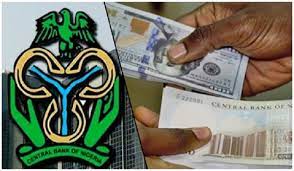The naira appreciated to N1,565 per dollar in the parallel market on Thursday, up from N1,580/$1 on Wednesday, marking its strongest performance in the week amid broad support for the Central Bank of Nigeria’s (CBN) monetary tightening stance by the International Monetary Fund (IMF).
A market survey conducted in Lagos showed that the naira gained value for the second consecutive day after opening the week at N1,575/$1 on Monday.
The steady improvement reflects rising market confidence and possibly lower demand for dollars in the informal market.
At the official window, the CBN reported that the naira firmed up to N1,525/$1 on Wednesday, compared to N1,527/$1 on Tuesday.
Intra-day trading ranged between N1,532/$1 and N1,524/$1, according to the CBN data, suggesting reduced volatility and narrowing arbitrage between market segments.
The naira also gained ground against other major currencies. It appreciated to N2,170/£1 on Thursday, improving from N2,175/£1 the previous day and N2,180/£1 on Tuesday. Against the euro, the currency remained stable at N1,810/€1 throughout the week.
The gains come as the IMF reaffirmed its support for Nigeria’s disinflation strategy. In its latest 2025 Article IV Consultation Report, the Fund described the CBN’s tight monetary policy as “appropriate and necessary” for anchoring inflation expectations and stabilizing the macroeconomic environment.
“Directors agreed that the Central Bank of Nigeria is appropriately maintaining a tight monetary policy stance, which should continue until disinflation becomes entrenched,” the IMF said in the report released Wednesday.
The Fund also lauded the CBN’s decision to end deficit monetization, a key inflationary trigger in previous years, and encouraged sustained efforts in strengthening governance and transparency within the monetary framework.
At its most recent Monetary Policy Committee (MPC) meeting in May, the CBN retained its Monetary Policy Rate (MPR) at 27.5 per cent, while keeping the Cash Reserve Ratio (CRR) at 50 per cent for commercial banks and 16 per cent for merchant banks.
These measures are aimed at curbing liquidity, discouraging speculation, and reining in inflation, which has remained persistently high.
Financial analyst Tunde Alade, of CapitalEdge Consulting, said the naira’s recent gains reflect both “tighter naira liquidity in the system” and “improving investor perception.”
“The CBN has succeeded in signaling policy consistency, which is critical for the forex market. When you remove fiscal dominance, maintain a high MPR, and improve reserves, the naira will respond accordingly—even in the parallel market,” he said.
Currency trader Grace Nwokocha noted that reduced dollar demand this week may also be linked to slowing import orders and increased diaspora remittances as the summer travel season peaks.
“The IMF’s endorsement adds credibility to the CBN’s direction. Investors and even parallel market participants take cues from that,” she added.
The IMF projects Nigeria’s economy will grow by 3.4 per cent in 2025, an upward revision from its April forecast of 3.0 per cent, citing reforms and improved monetary-fiscal coordination as key growth drivers.
